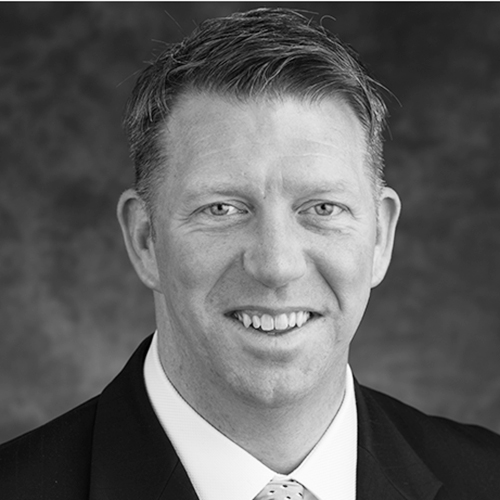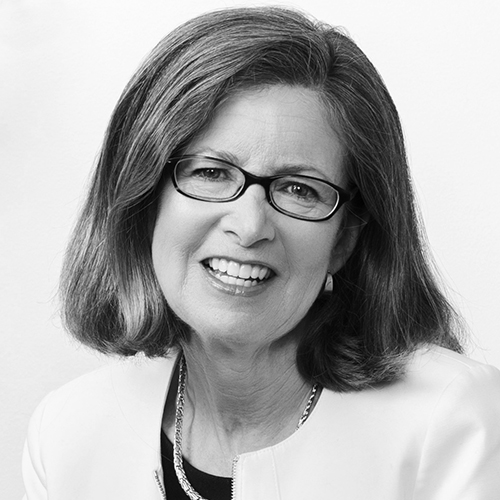At face value, Michael Redmond’s LinkedIn page reads like a Type-A personality’s dream resume: He was employed by accounting giant KPMG while he earned his bachelor’s degree at Fordham University. Rapid career followed ascent at two different, major health insurance companies—Cigna first, then Aetna—before he settled into the CFO role at Miami-based senior healthcare provider ChenMed.
But what his work history doesn’t tell you is how, a little over a decade ago, Redmond endured a brutal medical crisis that forever changed the way he’d view his work in the healthcare industry.
About midway through his tenure at Cigna Healthcare, Redmond, who was a strategic planning and forecasting controller at the time, had been pushing through what he thought was an especially aggressive strain of the flu. Without taking a single sick day, he thought the worst of it was over. Then, one morning he was so fatigued he napped in his car before even starting his workday. Then, he felt like he was moving in slow motion once he walked into the office. “I remember laughing at myself thinking, ‘I can’t believe this is me. I’m such a wimp!’” Redmond says.
By the end of lunch, he stood up to go to a meeting and quickly found himself flat on the floor of his cubicle, his leg refusing to cooperate. Given that he was already having numbness in his fingers by that point, the fall was especially alarming. By nightfall, he’d spent several hours in the emergency room, now barely able to stand up at all. He was soon diagnosed with Guillain-Barre Syndrome.
“With Guillain-Barre, your peripheral nervous system is under attack by antibodies that have gone haywire,” Redmond says. “They attack the lining on those nerves, initially affecting the extremities and then moving inward to the rest of the body, including the lungs. Basically your whole body shuts down, but you still feel pain. It’s a pretty miserable experience.”
It’s also a lengthy hospital stay—one month in and out of intensive care in Redmond’s case—followed by another month in a rehabilitation facility. And considering he spent a good deal of that first month in a state of almost complete paralysis, there was an unfathomable amount of recovery ahead.
But he fully recuperated and came away from the ordeal with not only renewed appreciation for good insurance (his treatments cost $25,000 a day at one point), but also with a passion for the healthcare industry that he says never really existed until then. “Throughout the whole process, I was conscious,” he says. “I probably witnessed the best of the best care as well as the worst of the worst care. When I think about insurance, I’m grateful and appreciate it. What I also realized was that relationships between patients and their doctors are critically important. Caretakers need to understand you as an individual; they can’t do that if they see you fifteen minutes a year.”
That realization ultimately led him to ChenMed. He had moved on to Aetna by the time the Affordable Care Act passed in 2010, and he had an active role in helping the company develop an accountable care solutions division as Aetna diversified its revenue. Redmond could sense a bridge building for him between the insurance and provider care sectors of healthcare, and going to the provider side was his next logical step. That’s when ChenMed came calling.
“Everything I was trying to create at Aetna, ChenMed was already doing it,” Redmond says. “The focus on being technology-enabled, at-risk primary care physicians for low- to moderate-income seniors in Medicare Advantage, that’s the core business.”
Where the average primary care physician has a panel of 2,000–3,000 patients, ChenMed’s primary care physician panels are limited to 400–450 patients. When those patients are seniors who are dealing with, on average, at least four chronic conditions, ChenMed primary care physicians aim to see them about fourteen times a year—whether they’re feeling well or not. Furthermore, ChenMed offers courtesy transportation and in-house medication dispensing as two of its more popular amenities that help keep patients healthy.
“We’re managing the sickest of the sick in a way that’s really helping these people live better lives,” Redmond says. “We’re keeping them out of the hospital and keeping them healthy. And we’re financially sound, so it speaks to where I want to be professionally as well as my personal passion.”
Caring for seniors with multiple chronic conditions is admittedly expensive. ChenMed’s work is made possible because it works within Medicare Advantage’s framework. ChenMed is a full-risk Medicare Advantage provider, meaning that instead of reimbursing for individual visits, tests, and services, ChenMed receives a portion of the premium and is responsible for the total cost of care. ChenMed keeps costs low by investing in preventive care–getting patients healthy and keeping them that way.
The good news is that Medicare Advantage allows ChenMed to risk-adjust, which means it can receive more funding from the government for patients who are sicker. “The reason that’s so beautiful is because, in most of healthcare, what the insurers are trying to do is put products out there that allow them to cover the largest percentage of the population but in a way where their risk is mitigated,” he explains. “What risk adjustment allows us and insurers to do is put a product out there that has broad appeal.”
Although ChenMed’s model of care has yet to prevail nationwide, Redmond knows the competition is out there—especially in ChenMed’s base of southern Florida, where senior populations are among the highest in the country. But he also knows the competition can’t quite compare to where the company is right now. “Clinical culture, scalability, and our technology—that’s what sets us apart,” he says.
“Watching and participating in the growth of ChenMed over the past several years has been an incredibly rewarding experience. Mike Redmond is a consummate professional, always eager to explore new ideas and to tackle any issues head-on. He expertly leads a team filled with skilled, experienced healthcare professionals and I’m happy to count myself among his resources.” –Robert B. Glick, Kaufman Rossin

